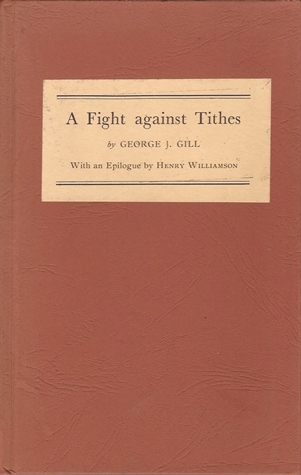A FIGHT AGAINST TITHES
George J. Gill
With an Epigraph by Henry Williamson
 |
|
| Privately published, 1952 |
Privately published 1952; printed by A. A. Tanner & Son, Dorking
Edited by Donald Gill and S. S. Gill
Those who have followed closely HW's problems over the years of his sojourn at Old Hall Farm, Stiffkey (see The Story of a Norfolk Farm), will be aware that one of those problems was the payment of 'tithes'.
A tithe was technically a tax of one tenth of the estimated income of land, based on its supposed yield, including, it seems, an amount for its possible (mythical) rental value.
From Anglo-Saxon times this was payable to the ecclesiastical authority of the area concerned, for the upkeep of both the Church and its clergy. Then in 1936, at the time that HW bought his farm, the Government bought the tithe system from the Church – for a huge sum – and so was able to apply the tithe tax for its own purposes.
Calculation of this tax was basically a mystery wrapped in a conundrum.
George Gill's book covers the subject very thoroughly and in a most readable way. But such are the ramifications of the subject that one feels none the wiser by the end of it (which was part of the problem: the thing was unfathomable!). It is however a very useful analysis of an intrinsic historical aspect of the life of this country, and as such a gem of British quirkiness. (The last vestiges of tithing ended in England and Wales in 1977.)
George Gill sadly died in 1947 before he was able to complete the work. His widow approached HW, who stepped in, gave his unstinting help (as in so many such instances), and provided the Epigraph. It is not known how many copies were printed, but it is unlikely to have been more than 1,000.
The preliminary information (the frontispiece is uncaptioned), the first pages of the opening chapters and an entertaining chapter XIII are given below as a sample of this interesting and scarce little book.
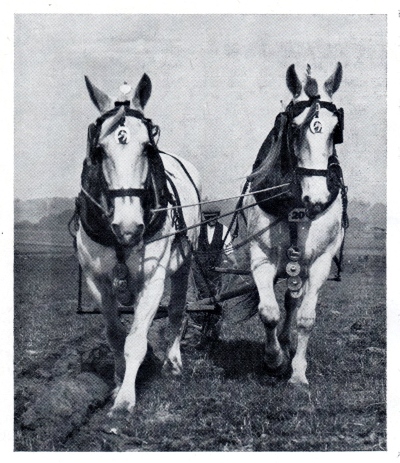
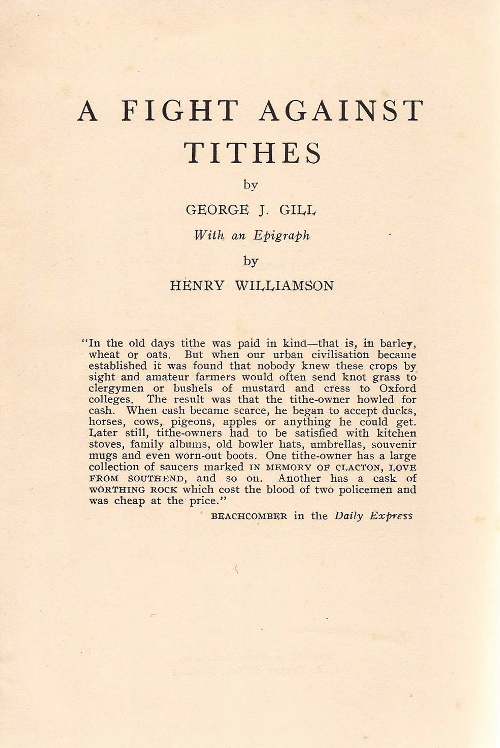


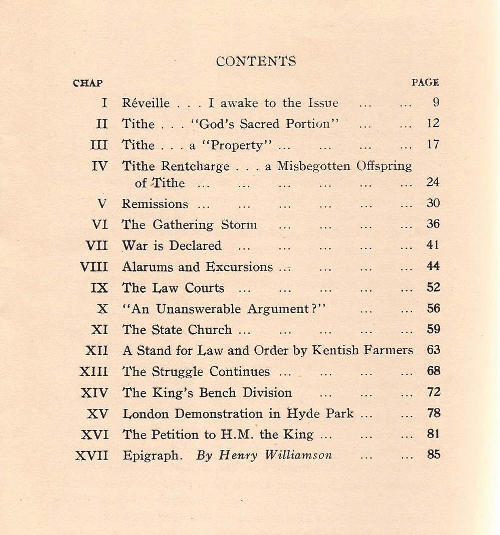
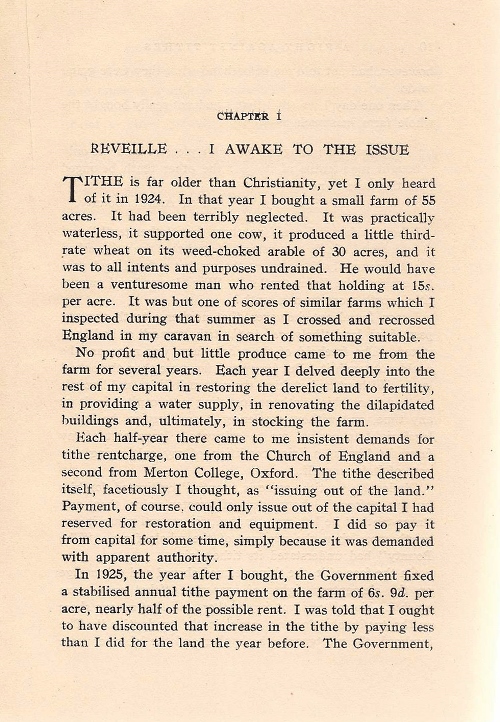
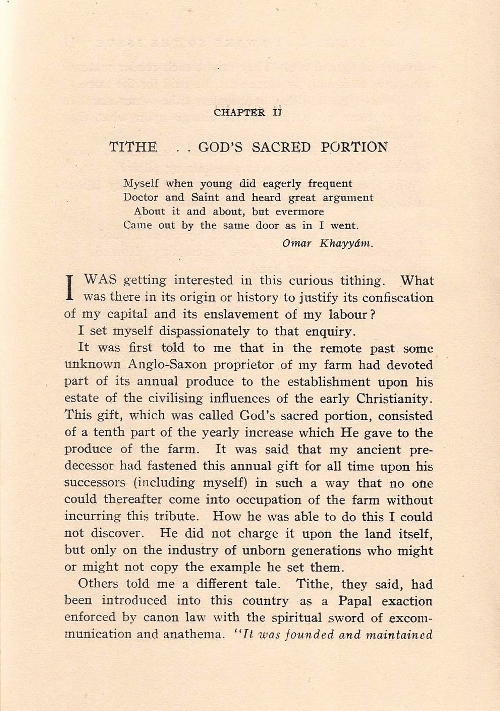

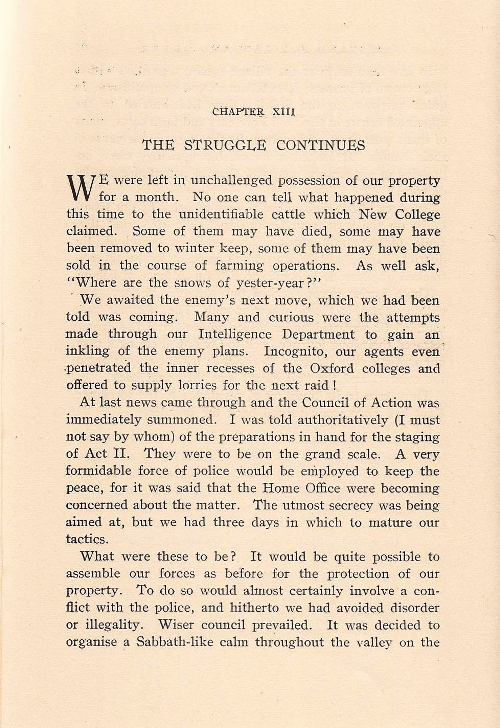
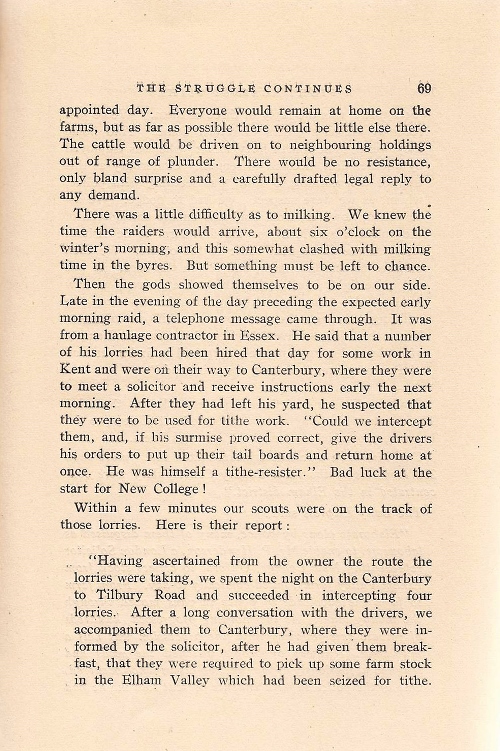
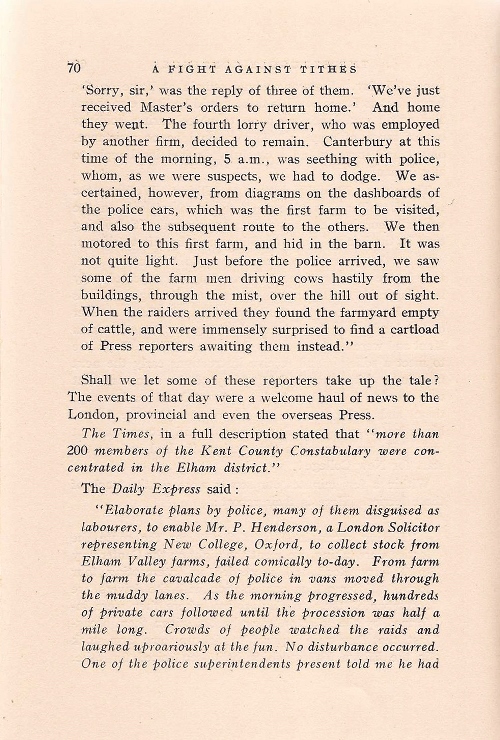
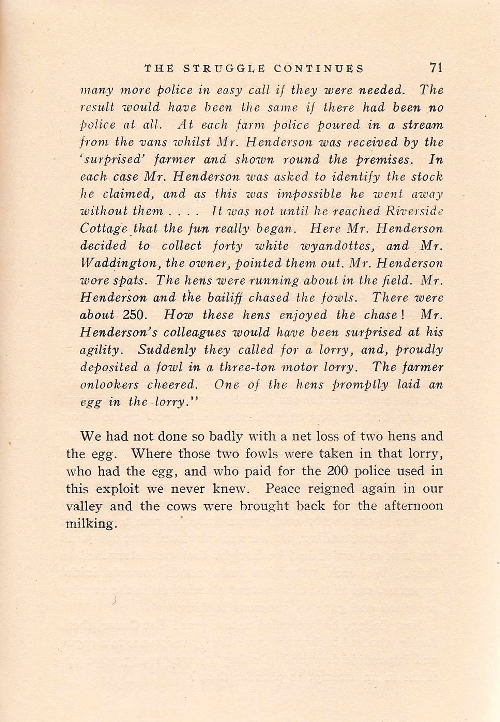
*************************
A Fight against Tithes being a scarce book, many readers may not have come across HW's 4-page Epigraph before. It is given in full below.
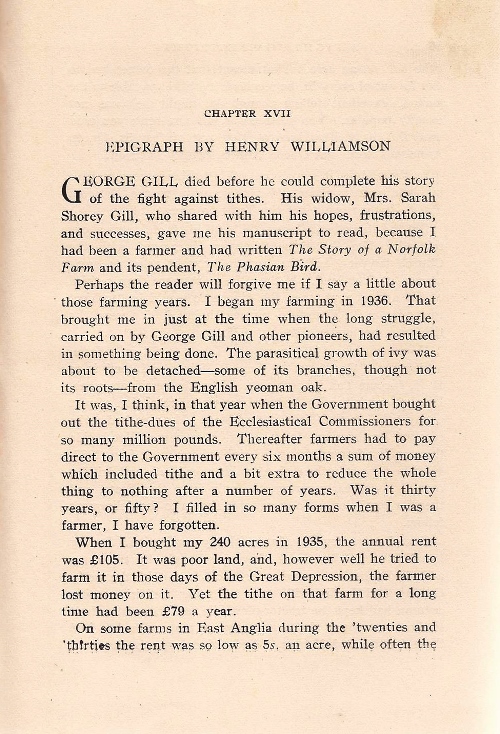

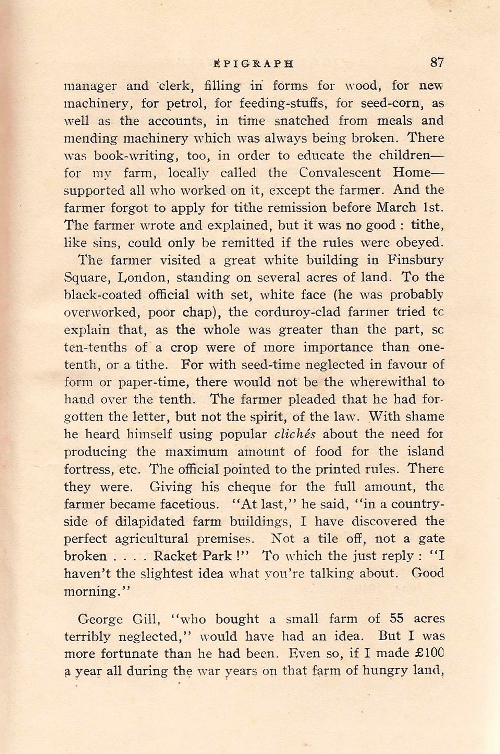
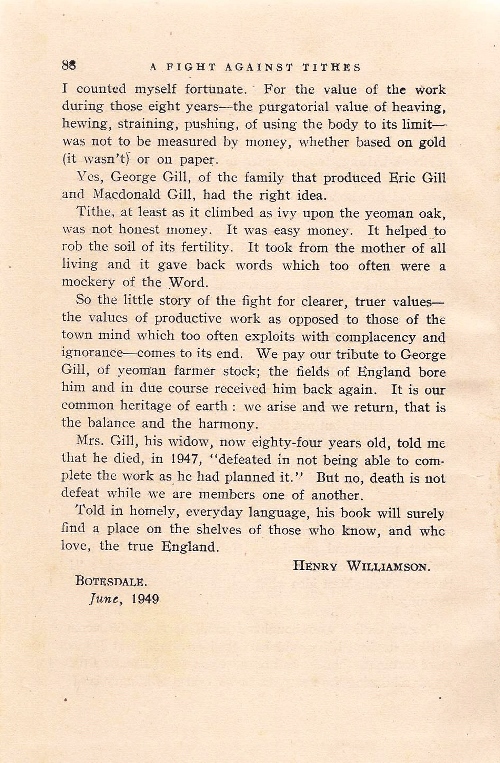
*************************
There was no dust wrapper. The binding is of textured paper-covered boards with a paper label on the front; there is no lettering on the spine.
